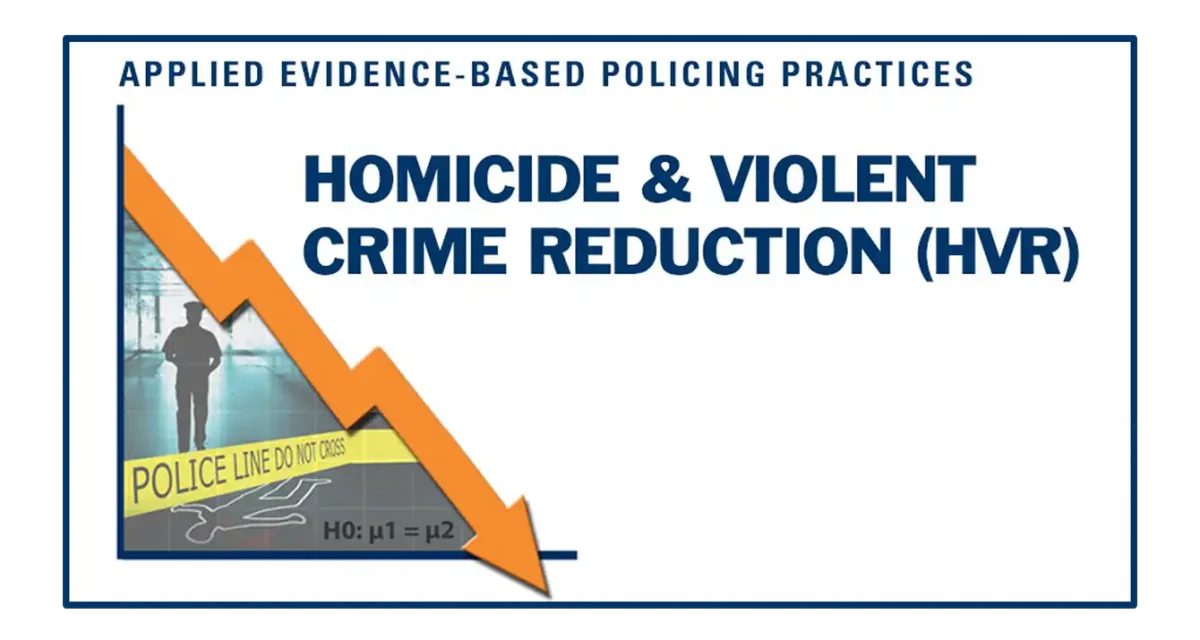
Although the past several decades have seen a steady decrease in violent crime statistics, homicides and violent crimes continue to have a devastating impact on many of our nation’s communities. With long-term social implications and staggering economic consequences, even minimal levels of violent crime diminish the quality of life in affected communities.
In response, homicide and violent crime reduction (HVR) remains a top priority for police agencies throughout the nation. The challenge is addressing violent crime with effective interventions and countermeasures. Instead of guessing or speculating on which HVR strategies work best, many agencies are turning to evidence-based policing practices (EBPP), to address the unique needs of the communities they serve.
Applied Evidence-Based Policing Practices: Homicide and Violent Crime Reduction (HVR Online) is designed as a rapid eLearn course that provides an overview of the concept of evidence-based policing and examples of practices that have been shown to reduce homicides and violent crime. Crafted with all levels of police practitioners in mind, HVR Online bridges the gap between research and practice.
On-screen text, videos and narration in a user-friendly eLearn environment allows participants to start, stop and resume the training based on their schedules. Participants should expect to spend approximately 2 – 4 hours exploring the resources provided in this dynamic and timely course.
Learning Objectives:
- Participants will become familiar with data-based violent crime trends.
- Participants will become familiar with the tangible and intangible impact of violent crime.
- Participants will identify the purpose of police in homicide and violent crime reduction.
- Participants will understand how evidence must be a deciding factor in selecting violent crime countermeasures and interventions.
- Participants will recognize the importance of research and evidence evaluation prior to prescribing large-scale countermeasures and intervention to violent crime.
- Participants will become familiar with Evidence-Based Policing Practices (EBPP).
- Participants will discuss the paradigms of EBPP.
- Participants will become familiar with the value and products of crime analysis.
- Participants will distinguish between data display and data extension.
- Participants will use web-based and technology-enhanced EBPP tools and resources.
- Participants will recognize the importance of utilizing effective EBPP as a treatment.
- Participants will become familiar with place-based policing strategies and their application to HVR.
- Participants will become familiar with offender-based policing strategies and their application to HVR.
- Participants will become familiar with the crime incident review process and its application to HVR.
- Participants will become familiar with principles of effective HVR implementation strategies.
- Participants will become familiar with principles of HVR measurement.
- Participants will become familiar with the role of Community Policing in the long-term sustainability of HVR.
Classroom – In-Person or Virtual Course
16 learning hours
Self-Paced Online Course
2 learning hours
Cooperative Partners:
This tuition-free online training was originally supported by cooperative agreement 2013CKWXK015 by the U.S. Department of Justice, Office of Community Oriented Policing Services (COPS).
